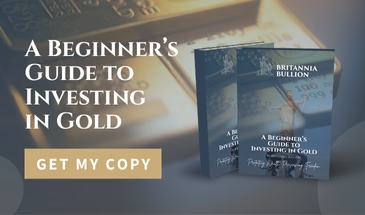When Banks Go Bust, You’re the Backstop
By Kane White, CEO and Founder of Britannia Bullion & Matthew Jones, Co-Founder of Britannia Bullion
Over a recent lunch with a client, someone with capital spread across more than 30 different bank accounts, a simple but important point came up: diversification feels safe. But as we continued the conversation, it became clear just how misunderstood today’s banking system really is.
If you believe your money is safely sitting inside a bank vault waiting for you, the following may surprise you, and we may be unable to help.
The Truth About Fractional Reserve Banking
Our current banking system operates under what’s known as fractional reserve banking. That means, when you deposit £100, the bank does not keep £100 in your account. In reality, it may hold just a small fraction, say £10, and lend the rest out.
This works, until it doesn’t.
The model relies entirely on public trust and stability. If too many people try to withdraw their funds at once, a “bank run”, the bank physically doesn’t have the money. It collapses. Savers lose deposits. Confidence is gone.
Legalised Loss: Bail-Ins, Not Bailouts
You may assume that if a bank fails, the government will step in to bail it out. Not anymore.
So, instead of pounds, you’re left with worthless paper shares in a collapsed institution. That is now the legal remedy. You can find more on this in the Bank of England’s own operational bail-in playbook.
The FSCS Illusion: Protection in Name Only?
Some clients have mentioned they rely on the Financial Services Compensation Scheme (FSCS) to protect their deposits. While the FSCS offers up to £85,000 in coverage per person, per bank, there’s a bigger question: Does it have the funds to honour that protection at scale?
According to public estimates, the FSCS has around £2.5 billion available. That sounds solid, until you consider that Barclays Bank alone has potential liabilities of upwards of £200 billion. And that’s just one bank.
In the event of a major banking failure, or worse, a systemic crisis where multiple institutions are affected, the FSCS’s funds would evaporate in minutes. It exists to reassure the public, not to actually resolve a banking collapse.
Fragile Systems and Real Risks
Let’s call it what it is: a confidence game.
Confidence is easy to maintain until war breaks out, markets panic, or inflation surges beyond control. All three are on the table today. In fact, given the current backdrop—rising geopolitical tensions, widespread inflation, and the looming introduction of central bank digital currencies (CBDCs)—we’re seeing a transformation in how wealth is controlled, taxed, accessed, and valued.
The rules are changing, and we have been warning about this.
Gold: A System Outside the System
This isn’t about fear. It’s about awareness.
Gold is not just a shiny metal. It’s outside the system. It cannot be bailed in. It is immune to inflation. And, while nothing is truly immune to the consequences of war, history shows gold tends to be the last asset left standing.
It doesn't rely on trust in government policy, doesn’t need a bank to validate it, and has no counterparty risk.
Final Thought...
You don’t need to panic. But you do need to plan.
The fragility of our financial system, the increasing likelihood of global conflict, and the creeping influence of digital control mechanisms all point in the same direction: we’re moving into a new economic era.
Those who understand that early will move.
Until next time,
Kane White & Matthew Jones

